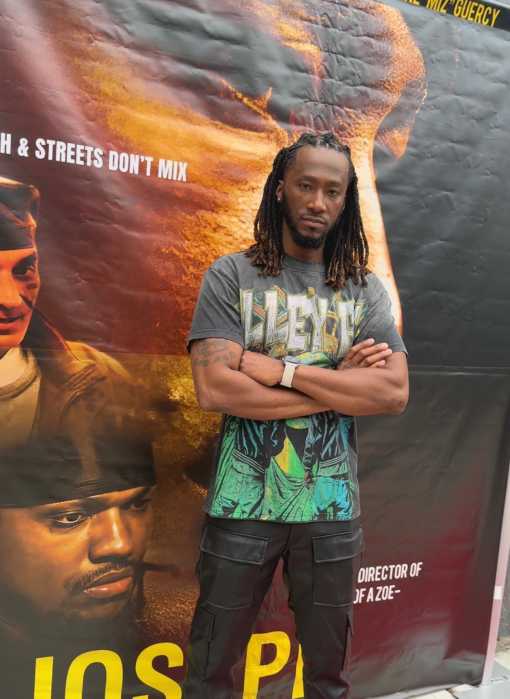Dharun Ravi. | VINCE JOY
Dharun Ravi, found guilty on 15 different criminal counts for his video surveillance and webcasting of intimate encounters that Tyler Clementi, his Rutgers University roommate, had with another man in their dorm room, had his convictions overturned by an intermediate appeals court.
On September 9, the New Jersey Appellate Division found that trial evidence about how Ravi’s actions adversely affected Clementi – who days later in September 2010 committed suicide by jumping from the George Washington Bridge – tainted all the verdicts because it may have caused the jury to convict Ravi based on Clementi’s beliefs rather than Ravi’s intent.
Five of the convictions were tossed out permanently, but the remaining 10 were sent back to the Middlesex County Superior Court, allowing prosecutors to retry Ravi on those counts.
Ravi and Clementi, both incoming freshmen at Rutgers, were assigned as dormitory roommates, and before school started Ravi, scoping Clementi out on the Internet, had concluded he might be gay. Ravi’s suspicions were reinforced on September 19 when Clementi asked Ravi if he could “have the room” for the evening because he was expecting a guest.
Appeals panel finds NJ Supreme Court’s 2015 nixing of portions of bias intimidation law doomed guilty verdicts
When Ravi saw that the guest was an “older man,” according to the court’s opinion, he arranged the webcam on his desk to focus on Clementi’s bed, and left his computer on so the video chat function could be activated remotely. From across the hall in his high school friend Molly Wei’s room, the two briefly watched Clementi and his guest kissing, and Ravi tweeted that others could access his computer and watch the couple as well. Wei later played back the video of Clementi and the other man “making out” for friends in her room.
Ravi tried to repeat the surveillance and webcasting two nights later, when Clementi also asked to have the room, but nobody was able to see what was going on in the dorm room.
The guest, identified by the court only with his initials M.B. to preserve his confidentiality, testified that he and Clementi had sex on both occasions, that he had observed the webcam focused on the bed during the first of these meetings but not said anything to Clementi, and that the second time he noticed the webcam was pointed away from the bed. He testified that he first learned about Clementi’s suicide when he read about it in the news.
When Clementi viewed Ravi’s Twitter feed and learned about what happened, he apparently was mortified and went to a resident assistant to ask for an immediate room change. Rutgers administrators began an investigation.
When Ravi learned about the investigation, he deleted some incriminating tweets, composed a new backdated tweet telling his followers not to attempt to video chat with him and to ignore a previous tweet. He also sent Ravi an apologetic text message, disclaiming any ill intent and asserting that on the second night he deliberately repositioned the webcam so nobody could see anything. Ravi also told him he had “no problem” with Clementi being gay, saying, “In fact one of my closest friends is gay and he and I have a very open relationship. I just suspected you were shy about it which is why I never broached the topic. I don’t want your freshman year to be ruined because of a petty misunderstanding, it’s adding to my guilt. You have the right to move if you wish but I don’t want you to feel pressured to without fully understanding the situation.”
Shortly after Ravi sent the text, Clementi wrote on his Facebook page, “I’m going to jump off the GW Bridge. Sorry.” He committed suicide later that night. There is no evidence whether Clementi ever saw Ravi’s text message.
Several days after the video surveillance, Tyler Clementi took his own life.
As soon as Clementi’s death was discovered, Rutgers ramped up the investigation. Ravi sent a series of phone and text messages to Wei, who had been brought in for police questioning, and those messages were introduced in evidence regarding charges of witness tampering and hindering apprehension of prosecution against him. After waiving his Miranda rights, Ravi gave a statement to investigators that cleaned up his actions, according to the court, by omitting “homophobic statements he candidly included” in the tweets and texts he had sent to his followers and friends about Clementi’s activities in the dorm room.
“Without reciting at length the forty-four page interrogation document,” wrote the court, “we can safely summarize its content as a poorly executed attempt by defendant to sanitize his motives for using his knowledge of computers to surreptitiously observe T.C. and M.B. engaged in sexual relations.”
The main charges against Ravi were brought under New Jersey’s bias intimidation and invasion of privacy statutes. At the time, the bias intimidation law provided that a person was guilty of “bias intimidation” if “he commits, attempts to commit, conspires with another to commit, or threatens the immediate commission” of a variety of offenses listed in the statute either (1) purposely or (2) knowingly harassing the victim because of a characteristic, such as sexual orientation, listed in the statute, or if the victim (3) either “reasonably believed that the harassment was committed with a purpose to intimidate him” or that “he was selected to be the target” because of the characteristic.
The prosecution focused on the third of these categories, where they had the weightiest evidence. Their major focus was in persuading the jury that Clementi was a shy, sensitive person, who clearly communicated to the resident assistant how upset he was by this “spying.” The evidence was overwhelming that the prosecution proved this element of the crime beyond a reasonable doubt.
On the other hand, the evidence that Ravi intended to harm or upset Clementi was less overwhelming, according to the evidence summarized by Judge Jose Fuentes, writing for the appellate panel. Testimony that Fuentes pointed to showed Ravi to be an immature, insensitive young man who lacked empathy for his roommate and was curious to know what was going on in his dorm room when he “gave the room” to Clementi. It’s hard to see how Ravi could believe Clementi wouldn’t learn about his spying, since he was tweeting about it, or that Clementi – or anybody, for that matter – would not be upset about their private activities being webcast in that way.
It’s possible, then, that the prosecution could have secured bias intimidation convictions without introducing evidence about the impact of Ravi’s actions on Clementi and just focusing on what Ravi had said, tweeted, and done. But given the strength of the evidence regarding the statute’s third element, prosecutors presented all of it and won convictions across the board.
During jury selection, the judge told prospective jurors about Clementi’s suicide but emphasized that Ravi “was not charged with either causing or contributing to his death.” Clementi’s death was also mentioned several times during the trial, but was not mentioned during the judge’s charge to the jury or the prosecution’s closing argument. It was made clear to the jury that Ravi was being tried solely for his own actions.
After his convictions, Ravi received what the prosecutors – and many commentators – believed was an extraordinarily light sentence: three years of probation, a jail sentence of 30 days, 300 hours of community service, counseling, and a $10,000 “assessment” to be donated to a community organization providing assistance to bias crimes victims.
Ravi appealed his conviction, but fulfilled his sentence pending the appeal. The prosecutors also appealed, arguing Ravi should have received substantially more time in jail.
Three years after Ravi’s conviction, the New Jersey Supreme Court declared that the third part of the bias intimidation statute was unconstitutional because it allowed a defendant to be convicted without any proof he intentionally or knowingly engaged in illegal conduct, but rather solely on a victim’s belief they were the target of harassment. The court found that this violated basic constitutional rights.
“In focusing on the victim’s perception and not the defendant’s intent, the statute does not give a defendant sufficient guidance or notice on how to conform to the law,” wrote Justice Barry T. Albin for the State Supreme Court. “That is so because a defendant may be convicted of a bias crime even though a jury concluded that the defendant had no intent to commit such a crime.”
The other two parts of the bias intimidation statute survived the State Supreme Court ruling.
As a result of the 2015 state high court decision, is not surprising that the Appellate Division found that the verdict on all four bias intimidation counts had to be thrown out. What was surprising, however, was that conviction on all the other counts fell as well.
“The evidence the State presented to prove the bias intimidation charges [under the stricken provision] permeated the entire case against defendant, rendering any attempt to salvage the convictions under the remaining charges futile,” Judge Fuentes wrote. “The State used evidence revealing the victim’s reserved demeanor and expressions of shame and humiliation as a counterweight to defendant’s cavalier indifference and unabashed insensitivity to his roommate’s right to privacy and dignity. The prosecutor aggressively pressed this point to the jury in her eloquent closing argument.”
The appellate panel concluded, “It is unreasonable to expect a rational juror to remain unaffected by this evidence.”
Despite evidence that clearly supported the charges of invasion of privacy counts, tampering with evidence, and attempting to affect what witnesses would say, the three-judge panel was convinced that the evidence about the effect on Clementi and his subsequent suicide, which should not have been presented to the jury, “constituted an error ‘of such a nature to have been clearly capable of producing an unjust result.’”
In addition to the bias intimidation counts, the court also permanently dismissed one count of hindering prosecution, finding that the evidence there was deficient.
Fuentes concluded by condemning Ravi’s conduct and lamenting the misuse to which the Internet can be put.
“The sense of loss associated with a young man taking his own life defies our meager powers of reason and tests our resolve to seek consolation,” he wrote. “From a societal perspective, this case has exposed some of the latent dangers concealed by the seemingly magical powers of the Internet. The implications associated with the misuse of our technological advancements lies beyond this court’s competency to address.”
Though Ravi has never faced charges in Clementi’s death, the court was not willing to conclude without alluding to the responsibility he and others had in creating a toxic climate for the victim.
“The social environment that transformed a private act of sexual intimacy into a grotesque voyeuristic spectacle must be unequivocally condemned in the strongest possible way,” wrote Fuentes. “The fact that this occurred in a university dormitory, housing first-year college students, only exacerbates our collective sense of disbelief and disorientation. All of the young men and women who had any association with this tragedy must pause to reflect and assess whether this experience has cast an indelible moral shadow on their character.”
Ravi now faces the possibility of being retried on 10 counts of actual or attempted invasion of privacy, hindering apprehension, witness tampering, and evidence tampering. The Middlesex County prosecutors must decide whether to seek a new trial, and a decision is expected within a week.
Ravi never returned to Rutgers, and is now working, according to the Daily News. Tyler Clementi’s family responded to the tragedy by starting a foundation to combat bullying and harassment of gay kids.





























